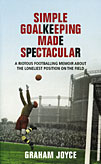 A Riotous Footballing Memoir About the Loneliest Position on the Field
A Riotous Footballing Memoir About the Loneliest Position on the Field
by Graham Joyce
Mainstream, £8.99
Reviewed by Pete Green
From WSC 273 November 2009
What do goalkeepers daydream about? What goes through their minds when all the play is down the other end? Simple Goalkeeping Made Spectacular is the true story of a 52-year-old custodian called up to represent England in a Writers’ World Cup in Florence. The story fades into the background, however, as Graham Joyce digresses into matters as diverse as the pre-match huddle, what the six-yard box is for and the efficacy of spraying WD-40 on your osteoarthritic knees.
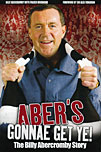 The Billy Abercromby Story
The Billy Abercromby Story 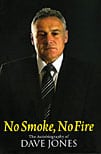 The Autobiography of Dave Jones
The Autobiography of Dave Jones 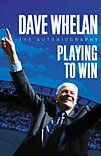 Playing To Win
Playing To Win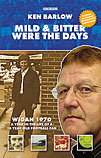 Mild And Bitter Were The Days
Mild And Bitter Were The Days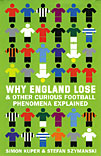 And Other Curious Phenomena Explained
And Other Curious Phenomena Explained